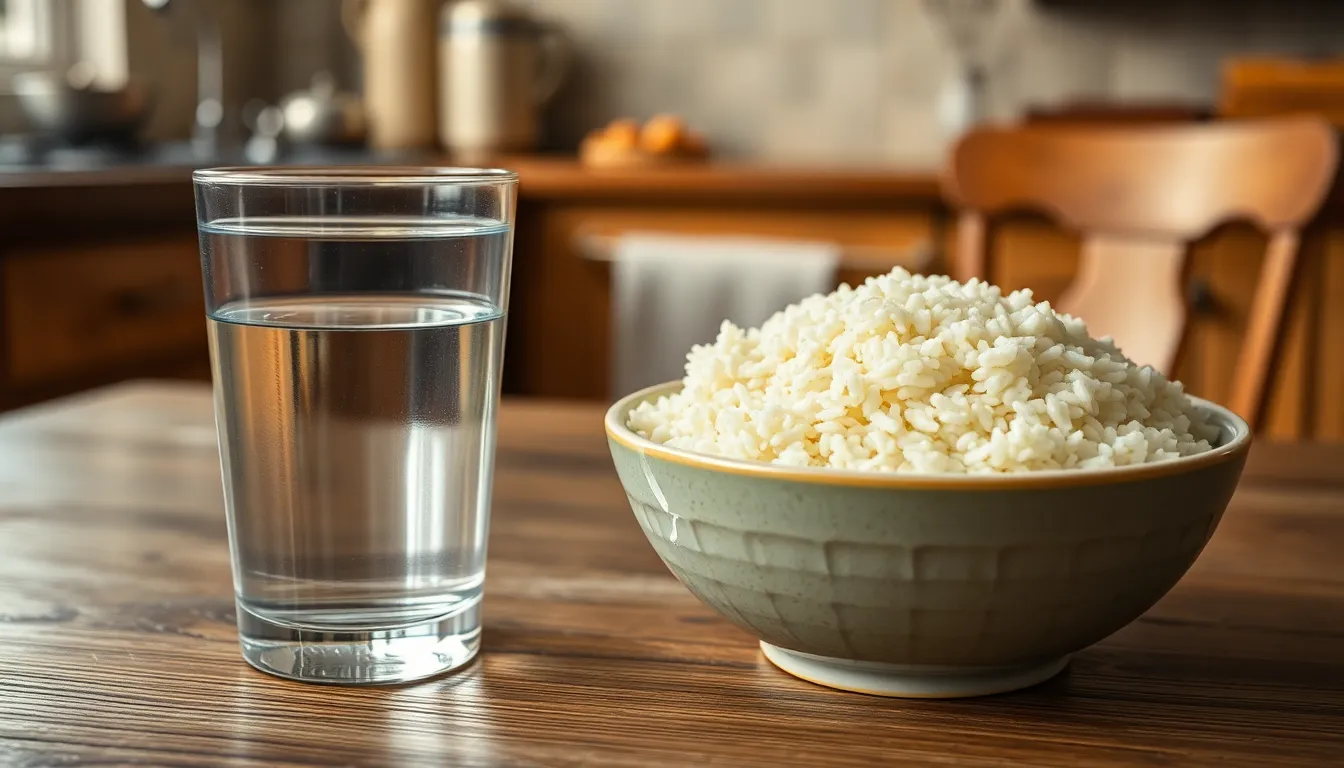Table of Contents
ToggleFood poisoning can strike when least expected, turning a delightful meal into a nightmare. One moment you’re savoring your favorite dish, and the next, you’re questioning all your life choices while hugging the porcelain throne. It’s not just a bad day—it’s a culinary betrayal! But fear not, help is at hand.
Understanding Food Poisoning
Food poisoning occurs when contaminated food disrupts the digestive system. Knowing its causes and symptoms aids in early detection and effective treatment.
Common Causes
Bacteria often lead to food poisoning. Salmonella and E. coli frequently arise from undercooked meats and unwashed produce. Viruses such as norovirus can spread through contaminated surfaces or infected individuals. Chemicals, including pesticides and heavy metals, sometimes contaminate food as well. Cross-contamination during food preparation may worsen the risk. Improper food storage contributes to bacterial growth, especially at unsafe temperatures. Recognizing these sources helps individuals avoid potential hazards.
Symptoms to Watch For
Nausea usually signals the onset of food poisoning. Vomiting frequently follows, often accompanied by abdominal cramps. Diarrhea often occurs shortly thereafter, leading to dehydration. Fever may emerge as the body fights off the infection. Symptoms typically surface within hours or days after exposure, depending on the source. Fatigue commonly accompanies these symptoms due to fluid loss and overall discomfort. Identifying these signs helps with timely medical intervention.
Immediate Actions to Take

Taking prompt actions after food poisoning can alleviate symptoms and promote recovery. Prioritizing hydration and dietary choices plays a crucial role in managing discomfort.
Hydration Importance
Hydration maintains bodily functions during food poisoning recovery. Drinking clear fluids such as water, broth, or oral rehydration solutions helps replenish lost fluids. Adults should aim for at least 8–10 cups of clear fluids each day. Gatorade or Pedialyte can restore electrolytes effectively. Avoiding caffeine and alcohol accelerates dehydration. Not drinking enough fluids can exacerbate symptoms, leading to severe dehydration.
Avoiding Solid Foods
Food intake should be minimal immediately following the onset of food poisoning. Eating solid foods can irritate the stomach further, worsening nausea and abdominal discomfort. Gradually reintroducing bland foods, like toast or rice, helps settle the stomach. Introducing small portions after symptoms subside assists in determining tolerance. Fried, greasy, or spicy foods should be avoided until fully recovered. Remaining cautious about food choices promotes a smoother recovery process.
Foods That Can Help Recovery
Choosing the right foods can significantly support recovery from food poisoning. Focus on bland, easy-to-digest options that soothe the stomach.
Suitable Foods
- Rice aids digestion and provides necessary carbohydrates.
- Bananas help replenish potassium lost during vomiting and diarrhea.
- Applesauce offers gentle fiber that can ease stomach discomfort.
- Toast provides a simple, non-irritating carbohydrate source.
- Broth helps with hydration while delivering vital nutrients.
These foods can stabilize the digestive system and provide essential energy while promoting healing.
Foods to Avoid
- Fatty foods can exacerbate nausea and slow down recovery.
- Spicy foods may irritate the stomach lining, causing further discomfort.
- Dairy products can be hard to digest, especially after illness.
- Caffeinated beverages increase dehydration, hindering recovery.
- Alcohol further irritates the stomach and disrupts hydration levels.
Avoiding these items ensures smoother recovery and reduces the risk of exacerbating symptoms.
Home Remedies
Home remedies can provide relief for food poisoning symptoms. They offer natural solutions to ease discomfort and promote recovery.
Herbal Solutions
Ginger serves as an effective herbal remedy for nausea. Drinking ginger tea can calm the stomach and reduce vomiting. Peppermint acts as another option; it soothes the gastrointestinal tract and improves digestion. Chamomile tea may help relax muscles and prevent cramping. These herbs possess anti-inflammatory properties that can alleviate symptoms and support the healing process. Incorporating these herbs into a daily routine can make a significant difference.
Natural Supplements
Probiotics play a vital role in restoring gut health. These supplements contain beneficial bacteria that enhance digestion and support the immune system. Activated charcoal may assist in reducing gas and bloating by absorbing toxins. Zinc supplements contribute to faster recovery by boosting the immune system. Remedies like these offer a complementary approach to managing food poisoning symptoms effectively. Using these natural supplements can encourage a smoother recovery process.
When to Seek Medical Attention
Recognizing when to seek medical attention for food poisoning is crucial. Serious symptoms can warrant immediate evaluation.
Warning Signs
Fever above 101.5°F may indicate a more severe infection. If symptoms persist for more than three days, it’s essential to consult a healthcare professional. Signs of dehydration, such as decreased urination, dizziness, or dry mouth, necessitate prompt medical intervention. Bloody stools or severe abdominal pain could also indicate complications that require urgent care. Additionally, if nausea and vomiting prevent fluid retention, medical advice is critical.
Treatment Options
Treatment options vary based on severity. Doctors may prescribe medications to control nausea or diarrhea. In some cases, intravenous fluids become necessary to address dehydration. For bacterial infections, antibiotics may be required. Supportive care, including rest and hydration, aids recovery. Specialists may also suggest dietary adjustments or supplements to restore health.
Food poisoning can be an unsettling experience but understanding how to manage it can make all the difference. Staying hydrated and choosing easy-to-digest foods are essential steps in the recovery process. Incorporating herbal remedies and natural supplements can also provide added relief.
Recognizing when to seek medical attention is crucial for preventing complications. By being informed and proactive, individuals can navigate the challenges of food poisoning more effectively and support their recovery journey. With the right approach, it’s possible to bounce back and return to enjoying meals without fear.





